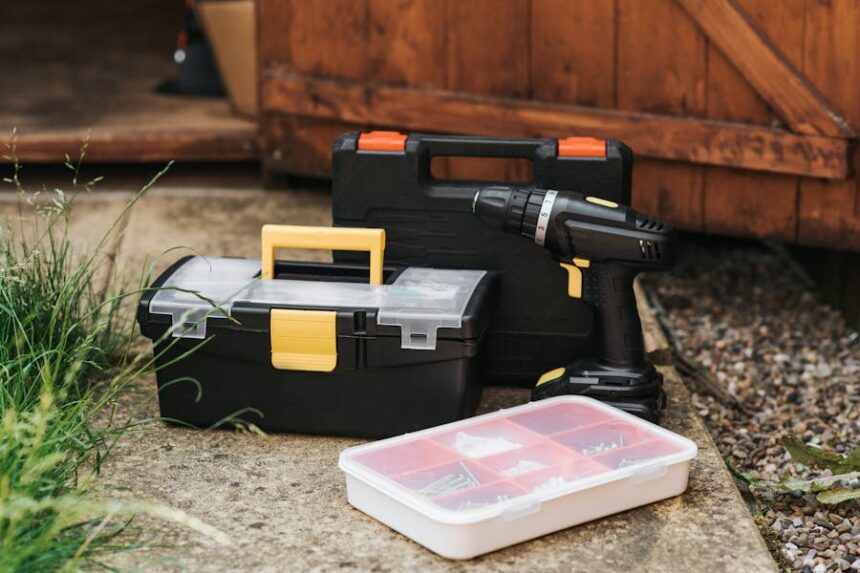Finding a reliable handyman service can be a daunting task, especially when you need quick fixes around the house. Whether you’re looking to tackle minor repairs, renovations, or maintenance tasks, choosing the right professional can ensure that the job is done efficiently and to a high standard. A dependable handyman can save you time, money, and stress, but selecting the wrong one can lead to poor workmanship or worse—unsatisfactory results.
- What to Look for in a Reliable Handyman Service?
- How to Evaluate Handyman Services?
- Checking Qualifications and Certifications
- Reading Reviews and Checking References
- Conducting Interviews and Asking Questions
- How Much Does a Reliable Handyman Service Cost?
- Red Flags to Avoid When Hiring a Handyman
- Legal and Insurance Considerations When Hiring a Handyman
- Final Remarks
- FAQ’s
In this article, we’ll guide you through the process of selecting the best handyman service, with tips on what to look for, how to evaluate candidates, and the questions you should ask before hiring. From checking licenses and insurance to understanding the scope of the work, we’ll cover everything you need to know to make an informed decision. Whether you are trying to build a long-term relationship with a local handyman or simply want a straightforward, manageable project, we’ll help you find the best option for your needs.
What to Look for in a Reliable Handyman Service?
When hiring a handyman, it’s essential to ensure they have the qualities that make them reliable and trustworthy. Key factors to consider include experience and skillset, as a good handyman should have a proven track record in handling the type of tasks you need assistance with. Whether it’s plumbing, electrical work, or general repairs, experience in the specific area ensures they can do the job right the first time.
Another critical factor is the service’s reputation. You can gauge this by checking online reviews and asking for referrals from friends, family, or colleagues. Reviews give insight into the quality of their work, professionalism, and reliability.
In addition to experience and reputation, it’s essential to verify that the handyman is licensed, insured, and bonded. A licensed handyman ensures that they have met the necessary legal requirements and qualifications for performing the work. Insurance protects both you and the handyman in case of accidents or damage, while bonding protects if the work isn’t completed as promised.
By considering these factors, you can choose a reliable handyman service that meets your expectations and ensures the job is done safely and professionally.
How to Evaluate Handyman Services?
Once you know what to look for in a reliable handyman, the next step is to evaluate potential candidates. It’s essential to gather as much information as possible to ensure you’re hiring the right professional for the job.
Checking Qualifications and Certifications
Ensure that the handyman you choose has the proper qualifications, including the necessary licenses and certifications. These certifications indicate that the handyman is qualified to perform the specific work you require. Additionally, confirm that they have insurance to protect both you and the handyman in case of accidents or damages. A licensed and insured handyman gives you peace of mind, knowing that the work will be done safely and in compliance with local regulations.
Reading Reviews and Checking References
Customer reviews and references are valuable resources when evaluating a handyman service. Look for consistent positive feedback from previous clients, particularly about the quality of work, reliability, and professionalism. Asking for references allows you to speak directly with previous customers and gain an honest perspective about the service’s performance.
Conducting Interviews and Asking Questions
When interviewing potential handymen, ask the right questions to gauge their expertise and suitability for the job. Inquire about their experience with the specific tasks you need done, their approach to pricing, and whether they offer warranties on their work. This will help you understand their process and set expectations for the project.
How Much Does a Reliable Handyman Service Cost?
Understanding the pricing structure of handyman services is crucial for ensuring you receive a fair deal. The cost can vary depending on the type of service and several influencing factors. Here’s a breakdown:
- Hourly vs. Flat Rates: Handymen may charge by the hour or by a flat fee. Hourly rates are typically used for tasks that are uncertain in duration, such as general repairs or smaller jobs. On the other hand, flat fees are typically applied for tasks with a defined scope, such as installations or specific repairs. Flat fees provide clarity on the price, while hourly rates are ideal for more open-ended tasks.
- Factors Affecting Handyman Pricing: Several factors influence the pricing of handyman services. The complexity of the task is a key factor—specialized work, such as plumbing or electrical repairs, typically incurs higher costs. Location also plays a role, as prices can vary by region. Finally, the materials required for the job can add to the overall price, especially if high-end materials are needed.
Understanding these factors helps ensure that the cost aligns with the value of the service.
Red Flags to Avoid When Hiring a Handyman
While many handymen offer reliable services, it’s important to recognize red flags that may indicate poor quality or unreliable work. Here are some key warning signs to look for when hiring a handyman:
- Lack of Written Estimates: A reliable handyman should always provide a written estimate for the work to be done. Relying on verbal agreements can lead to misunderstandings and unexpected costs. Written estimates provide clarity on pricing and scope of work, protecting both parties involved.
- Unwillingness to Provide References or Proof of Insurance: A trustworthy handyman should be willing to share references and proof of insurance. References give insight into their previous work, while insurance protects you in case of accidents or damages during the job. If a handyman hesitates or refuses to provide these, it’s a red flag.
By being aware of these red flags, you can make a more informed decision when hiring a handyman, ensuring you choose someone reliable and professional.
Legal and Insurance Considerations When Hiring a Handyman
Before hiring a handyman, it’s crucial to ensure they have the proper insurance coverage and licenses. A reliable handyman should carry liability insurance, which protects both you and them in case of damage to your property or injury during the job. Additionally, workers’ compensation insurance is essential, as it covers medical expenses in the event of a job-related injury. Without these insurances, you could be held financially responsible for accidents or damage.
Equally important is confirming that the handyman is licensed according to your area’s local requirements. Different regions have specific regulations for handymen, and hiring an unlicensed individual could lead to legal complications. This section will guide you on the types of insurance and licenses to look for, ensuring that you hire a qualified professional who is compliant with the laws in your area. Always prioritize these factors to avoid potential risks and guarantee a smooth, legally sound experience.
Final Remarks
Choosing a reliable handyman service is essential for ensuring quality work and peace of mind. It’s essential to consider factors such as experience, qualifications, reviews, and pricing. Be sure to ask the right questions, check references, and verify that the handyman is appropriately licensed and insured. Doing so will help you make an informed decision and avoid potential risks.
Whether you’re tackling minor repairs or larger projects, selecting a trustworthy handyman can significantly impact the outcome of the work. By taking these steps, you’ll ensure the job is completed professionally, efficiently, and with minimal hassle.
FAQ’s
How do I know if a handyman is reliable?
A reliable handyman will have a proven track record, good reviews, proper licensing and insurance, and clear communication about pricing and expectations.
What should I ask a handyman before hiring them?
Ask about their experience, references, licensing, insurance, pricing structure, and whether they offer a written estimate for the work.
How much should I expect to pay for a handyman?
The cost varies based on the task and location, but handymen typically charge either by the hour or on a flat rate. Expect to pay $50 to $100 per hour, depending on the project.
Is it essential for a handyman to have insurance?
Yes, a handyman is required to have liability and workers’ compensation insurance. This protects you in the event of accidents or damage during the job.
Can I hire a handyman for minor home repairs?
Yes, handymen are great for small repairs, such as fixing leaky faucets, installing fixtures, or handling minor electrical and plumbing tasks. Just ensure they have experience with the type of work required.




